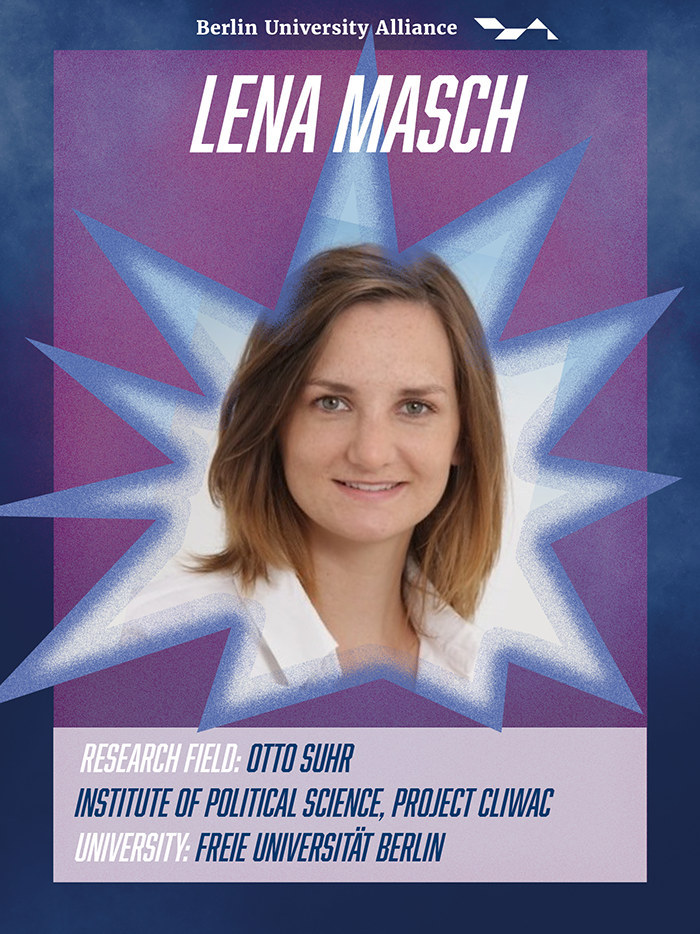Lena Interview
Lena Masch:
Freie Universität Berlin
Political Sociology of the Federal Republic of Germany, Project CliWaC
1. What is your field of research?
I am a political scientist specializing in political psychology and political communication. I work at the Otto Suhr Institute of Political Science at Freie Universität Berlin and in inter- and transdisciplinary research initiative on “Climate and Water under Change” (CliWaC). The Einstein Research Unit brings together scholars from several disciplines humanities, social sciences, natural sciences, and stakeholders to address water-related risks under climate change. I focus on public perceptions of water availability and scarcity in Berlin and Brandenburg, political and pro-environmental attitudes and behavior, and effective climate change communication.
2. Why are you participating in "Berlin is looking for the Sciencefluencer 2024"?
It is a great opportunity to become more visible as a researcher and to learn new tools to make research accessible to a wider audience. By participating, I hope that my social media content will reach other academics, journalists, think tanks, stakeholders, students and anyone interested in political and social sciences.
3. What challenges do you face when you become a science influencer?
Certainly, there is an initial doubt when it comes to posting content, wondering if it will be interesting or relevant to a wider audience. Over time, however, it becomes second nature to make such decisions and post quickly without second-guessing. Even if a post is not perfect, such as having a typo, it is not the end of the world as long as the message gets across and others engage with the content. On some platforms, posts can be edited to correct a typo; on others, you learn to live with small imperfections, and you could usually acknowledge it in a comment. I have come to realize that such small mistakes will not make the post less valuable to a wider audience if its content is relevant and meaningful.
4. What are your most important findings in your particular field of research?
My area of research deals with a number of questions that are highly relevant in today's societies, e.g., how can we promote social cohesion among citizens in polarized societies? How can we prevent the spread of misinformation, conspiracy theories, and science denial, such as climate change denial? As the field of political science looks at the resilience of democracies from different angles at the macro, meso, and micro levels, much research focuses on the role of political institutions, the media system or NGOs and civil societies. My work considers the interplay of the macro and micro level and focuses on public opinion and factors that influence the formation of political attitudes and beliefs. Understanding how attitudes are formed and persist is crucial to finding ways to combat misinformation, polarization, and hate.
5. What are your goals for the future?
My goal is to provide insight into my completed and ongoing research projects through my social media accounts to anyone who is interested. I am working to advance in my career and aim to provide accessible information for each research project along the way. For my current research project, I plan to present the results clearly as soon as the data analysis is completed, and add social relevance by addressing current issues whenever possible. More content on climate change perceptions and pro-environmental attitudes will follow soon.
The Interview will come soon..

